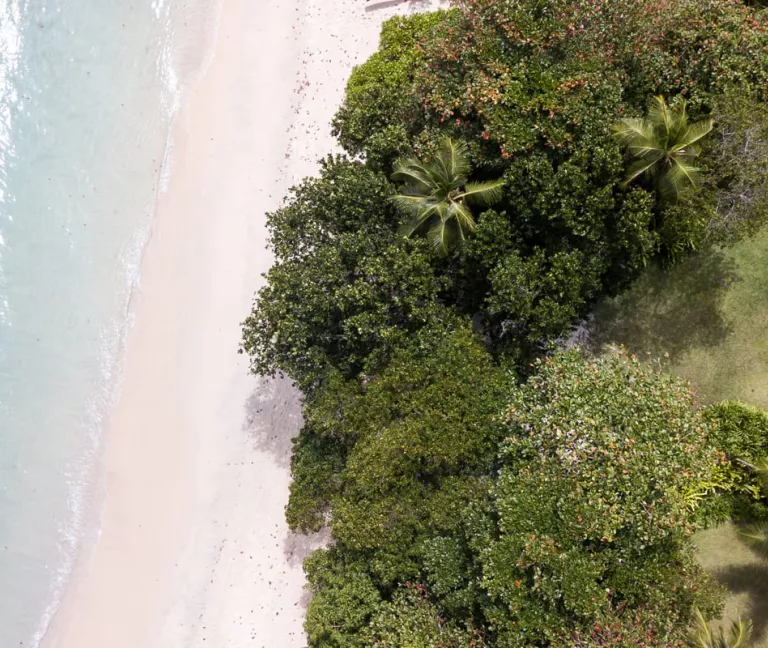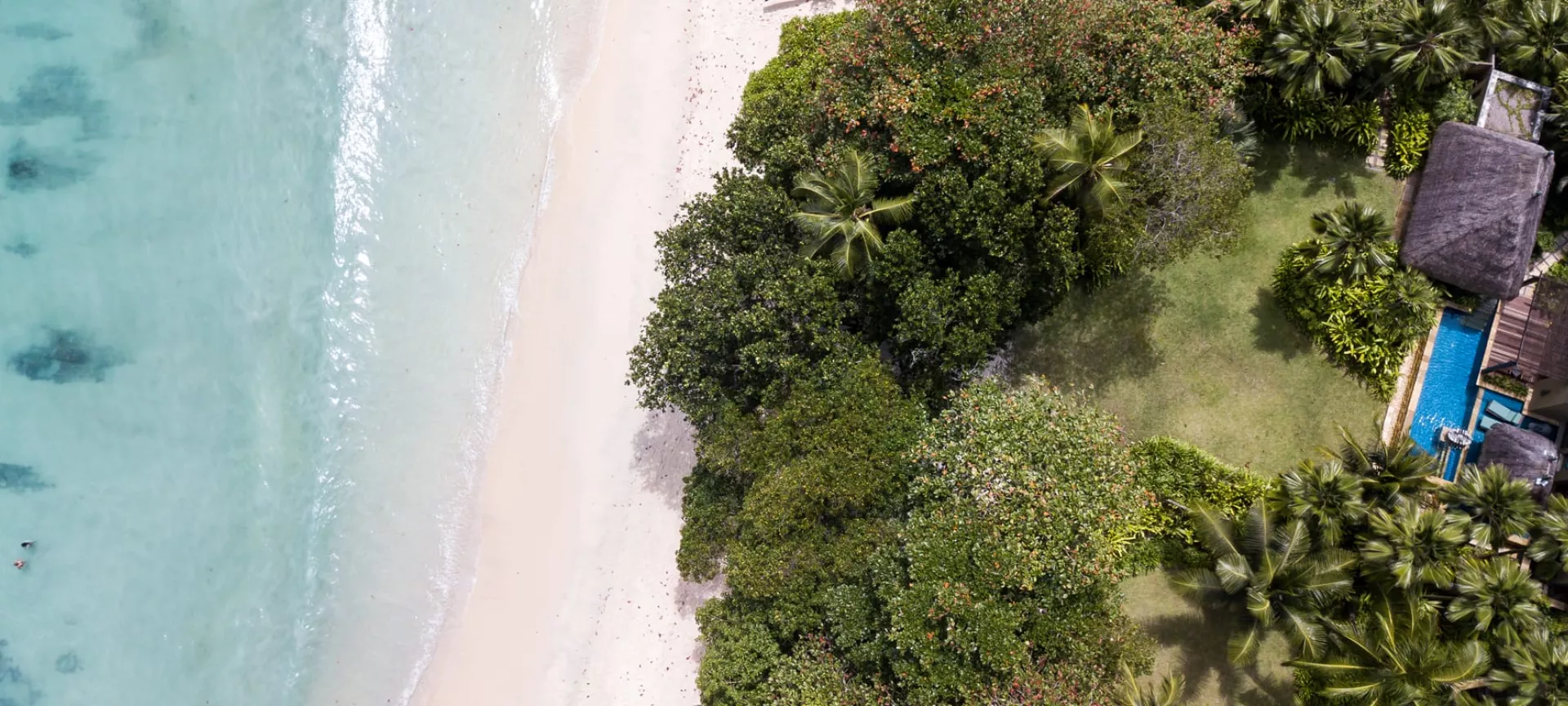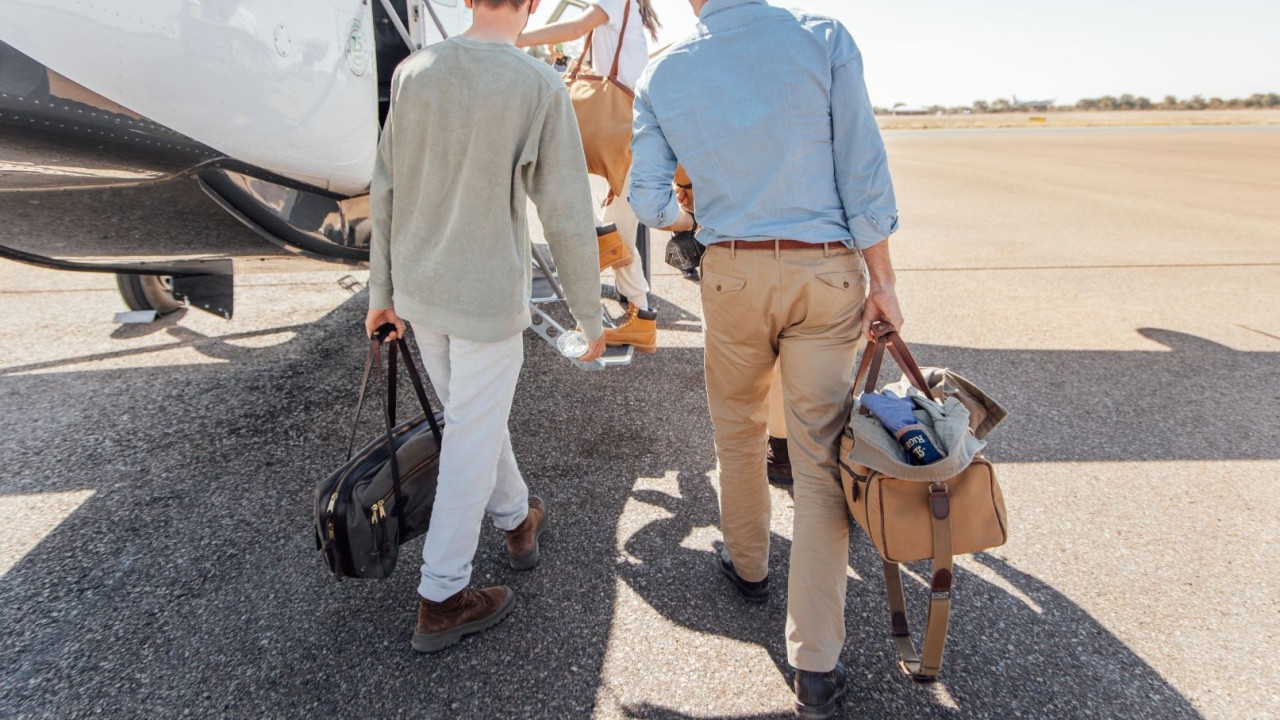
Packing for a safari isn't just about stuffing a bunch of clothes into your suitcase and hoping for the best; it's about preparing for the adventure of a lifetime!
Whether you’re tracking big game on foot, navigating the African savanna by 4x4, or relaxing under the stars, being well-prepared will make ALL the difference.
At Bonamy, we understand the unique needs of the male traveller.
So, we've gathered all the tips and tricks from highly experienced safari goers to curate the ultimate safari packing guide for men.
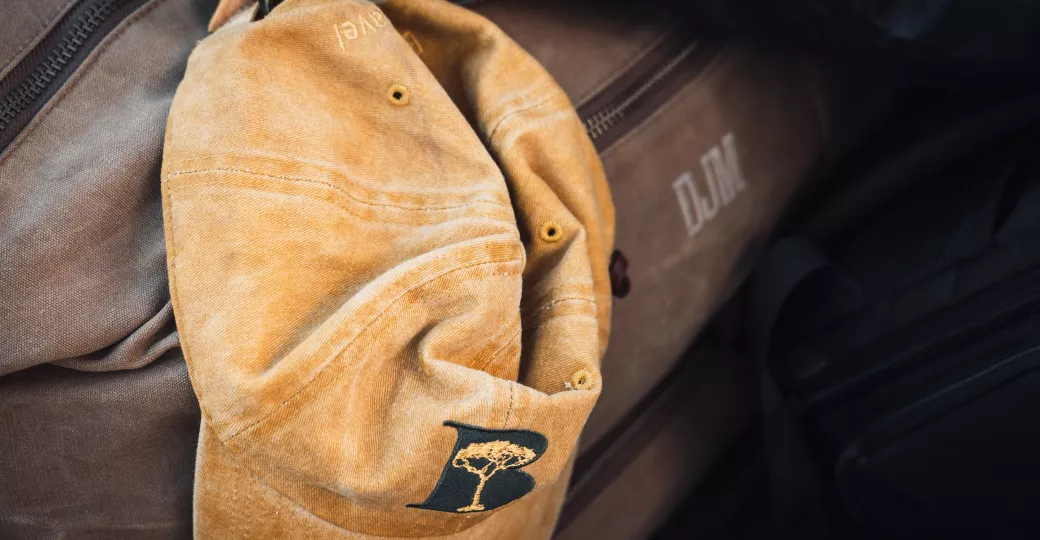
Wardrobe Must-Haves for Men:
Lightweight, breathable tops:
Short-sleeved shirts: Perfect for hot afternoons. Opt for natural, moisture-wicking fabrics like cotton.
Long-sleeved shirts: Great for early mornings and evenings when it’s cooler, and for protecting your arms from the sun and insects.
Comfortable trousers: Opt for trousers made from lightweight, breathable, and quick-drying fabric.
Shorts: For hotter parts of the day. Make sure they are durable and suitable for bush walks.
Fleece or puffer jacket: For cooler morning and evening game drives.
Swimshorts: To enjoy the pool at your lodge.
A beanie & gloves: Great for extra warmth on those cooler drives.
Sandals or flip-flops: Ideal for relaxing around camp during downtime.
Lightweight trainers/ comfortable walking shoes: For general comfort, walking safaris, and casual wear around camp.
Socks: Good quality socks, preferably moisture-wicking and cushioned to prevent blisters.
Wide-brimmed hat: Protects your face and neck from the sun. A hat with a chin strap can be useful to keep it in place during windy conditions.
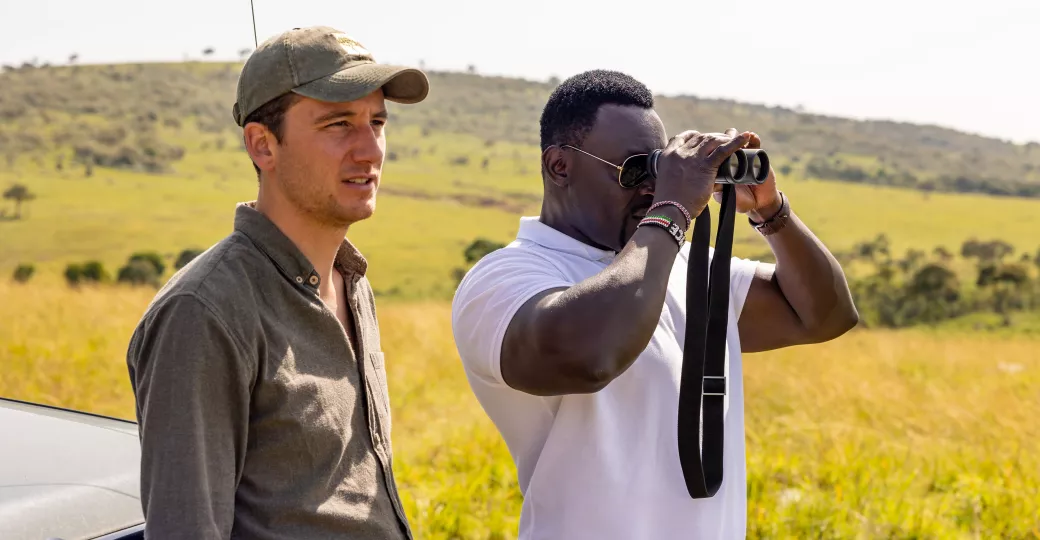
Skin Care & First Aid Essentials:
Moisturiser: A lightweight, non-greasy moisturiser to combat the dry, dusty conditions of the bush.
Suncream: Essential to protect your skin from the African sun.
Lip balm: Keep your lips hydrated and protected from the sun with a good lip balm containing SPF.
Razor: A simple razor for keeping your beard in check. Remember, the bush look is in, so no need for anything fancy!
Insect repellent: To avoid being bitten by the inevitable mosquitoes and bugs you'll come across in the bush.
Aloe vera gel: Great for sunburns and to soothe bites or cuts.
Haemorrhoid cream: For mosquito or tsetse fly bites (trust us, it's a secret weapon for the itch and swelling).
Personal medication: Things like prescription meds, anti-histamines and supplements - which you're unlikely to get hold of in the bush.
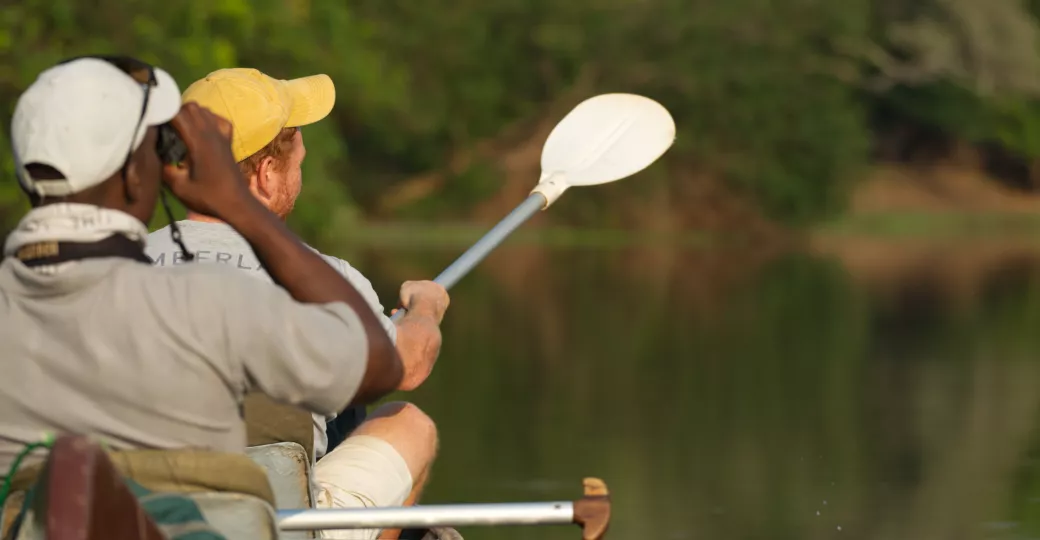
Electronics and Gadgets:
Binoculars: An essential for wildlife viewing.
Your camera: Don't forget extra memory cards and batteries!
Portable charger/power bank: To keep your electronics charged while you're doing activities.
Travel adapters: Plug types vary per country, so it's important to check.
Head torch/ small high-quality torch: You won’t regret it when you hear a random noise at night, shine your torch out there and have crystal clear views of a hippo or other nocturnal animal (just be careful not to blind them!).
An animal identifier app (download before you go): Whether it’s a mammal identifier, bird book, or a regional wildlife app. They usually include a checklist, how each animal looks and sounds, and more. This is really useful, especially for identifying the smaller lesser-known animals.
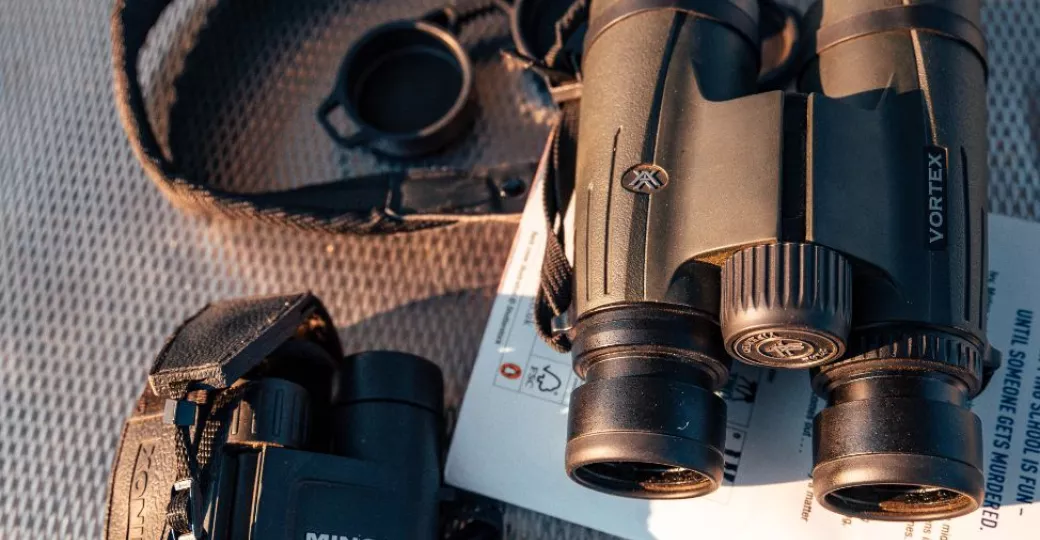
Essential Extras:
Besides your passport, visa, and travel documents (please don't forget those!), here are some useful extras that you'll thank us for later:
Sunglasses: Protect your eyes from the harsh African sun with a pair of quality sunglasses. Look for styles that offer both comfort and UV protection.
Sunglasses strap: To avoid your sunglasses ending up on the floor or being stretched on your head when constantly taking them off to look through binos or your camera.
A thermos/mug: To take a nice hot cup of tea or coffee onto early morning game drives.
Buff or bandana: Very useful for keeping the dust at bay, or adding another layer of warmth.
Something to wear that isn’t safari clothing: For dinners at the lodge and evenings relaxing around the fire.
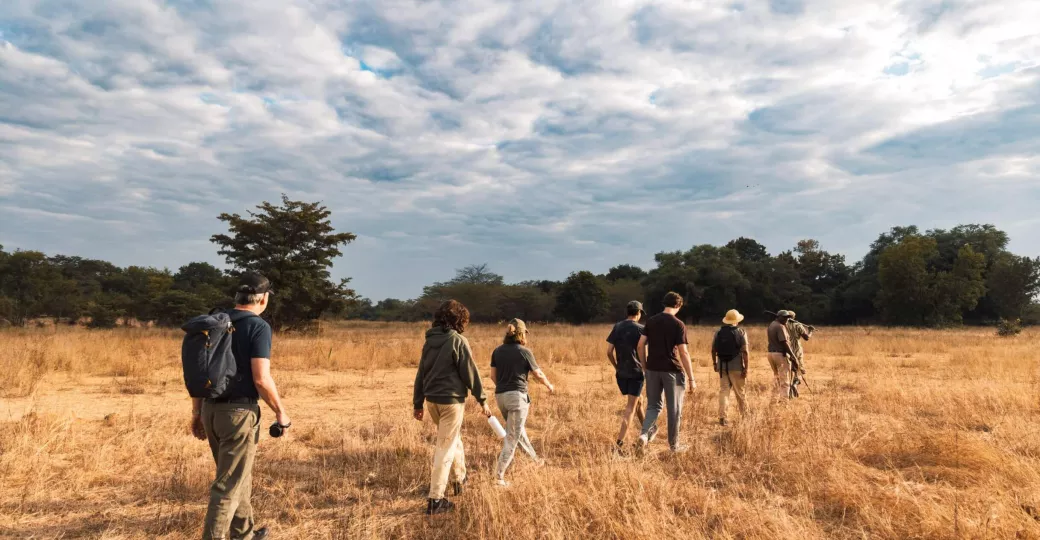
What to Leave Behind
Travelling light and smart ensures you have everything you need without the burden of unnecessary items. Here’s a rundown of what you can comfortably leave at home:
Formal Wear: Safaris are all about comfort and practicality. Leave the suits, ties, and smart shoes at home. Opt for lightweight, breathable clothing that you can layer easily.
Heavy Grooming Kits: Keep it simple. A basic grooming kit with your essentials will suffice. You don't need to bother with electric shavers, hair dryers, or an extensive array of products while out in the bush!
Jewellery: Valuable jewellery can be a liability. It’s best to leave your expensive watches, rings, and necklaces behind to avoid any potential damage or loss.
Scented Products: Strong colognes and scented lotions can attract unwanted bugs and animals. Stick to unscented or lightly scented products.
Heavy Books: Instead of packing heavy books, consider downloading a few on an e-reader or your phone. This saves space and weight in your luggage.
Stress: The most important thing to leave behind. A safari is about escaping the hustle and bustle of everyday life and reconnecting with nature. Embrace the adventure and forget your worries.
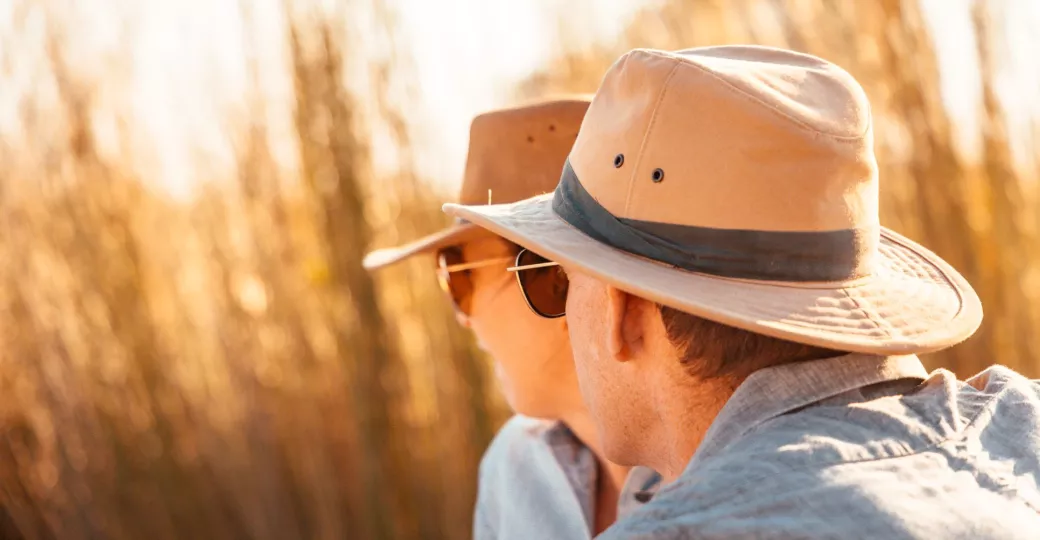
5 Top Tips
1. Pack light
Depending on where you are heading, luggage weight is normally between 15-20kg in soft-sided bags, so keep this in mind when packing!
We recommend:
Packing in pre-planned outfits - to avoid bringing unnecessary items.
Practical over fashionable when it comes to safari.
Use packing cubes to help separate everything so you’re not rummaging through your bag in the morning before sunrise trying to find where you put something.
2. Wear neutral tones
Stick to neutral colours like khaki, brown, and green to best blend in with the natural surroundings.
Why? Bright colours can attract unwanted attention from wildlife and insects, while neutral tones help you stay inconspicuous.
We also recommend you avoid wearing black, as it tends to attract mosquitoes.
Opt for all-natural fibre materials for extra comfort.
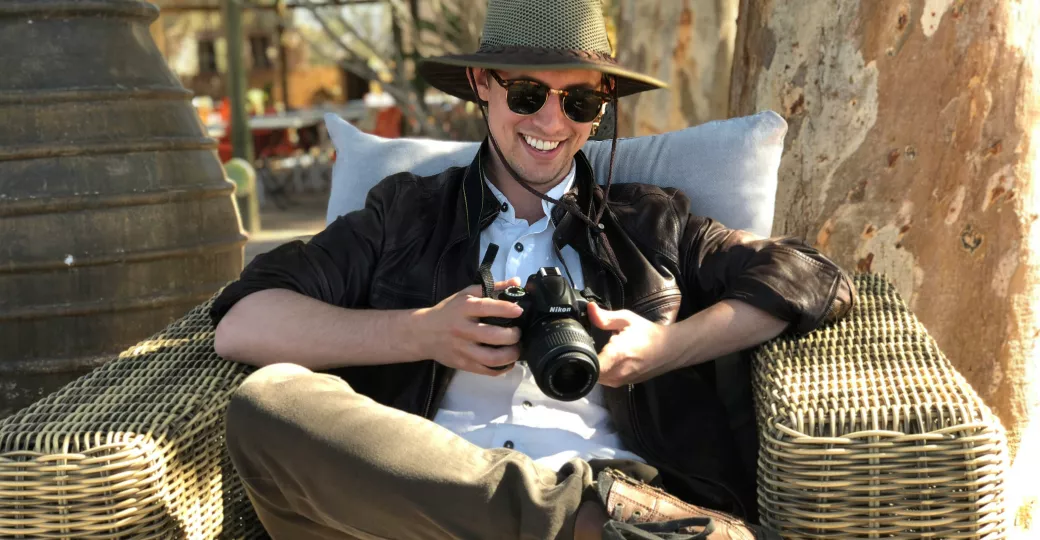
3. Layer up
African weather can be unpredictable, sometimes with chilly mornings and hot afternoons. Packing lightweight, breathable layers allows you to easily adjust to changing temperatures throughout the day, making sure you're prepared for any adventure.
4. Invest in a quality daypack
A good daypack is a game changer for carrying your camera, binoculars, water bottle, and other essentials during game drives and bush walks. We recommend one that is waterproof and zips closed so nothing can fall out, like the Bonamy Swish Tote.
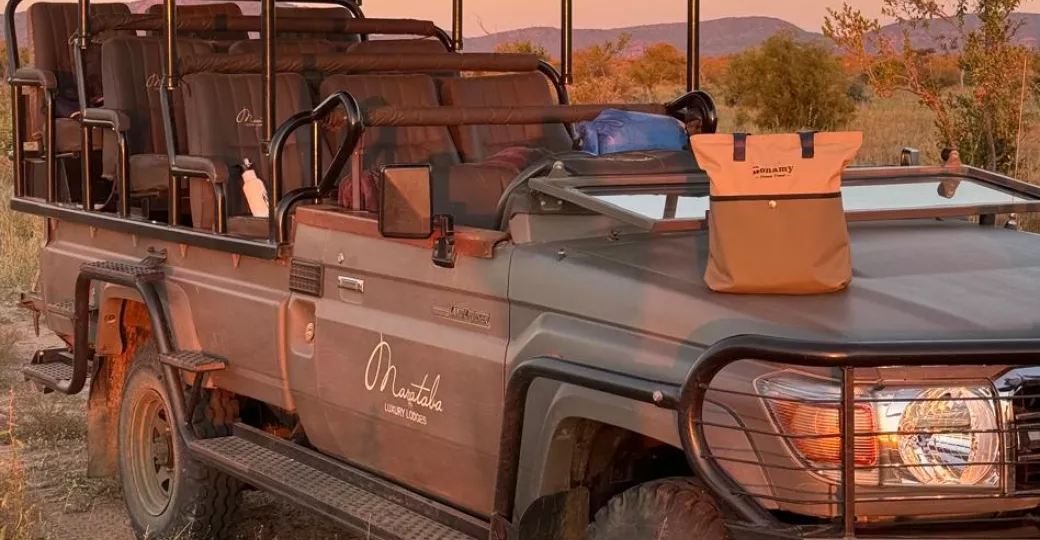
5. Plan properly
Proper planning can make or break your safari experience. Ensure you have all your essentials, from power banks to sunscreen, and know the specifics of your destination. Whether it’s understanding the best times to visit certain parks or the type of accommodation that suits your needs best, a well-planned trip enhances your adventure.
At Bonamy, we help you to plan the perfect safari that is completely personalised to your needs and preferences, ensuring that every detail is taken care of, so you can just focus on enjoying your journey.
Ready to start planning your adventure? Get in touch.

Taylor Knight
Growing up with the vibrant landscapes of South Africa as her backdrop, Taylor has always been drawn to nature and adventure. Her wanderlust has led her to explore diverse corners of the world, wit...
View profileNever miss a notebook entry with our newsletter

